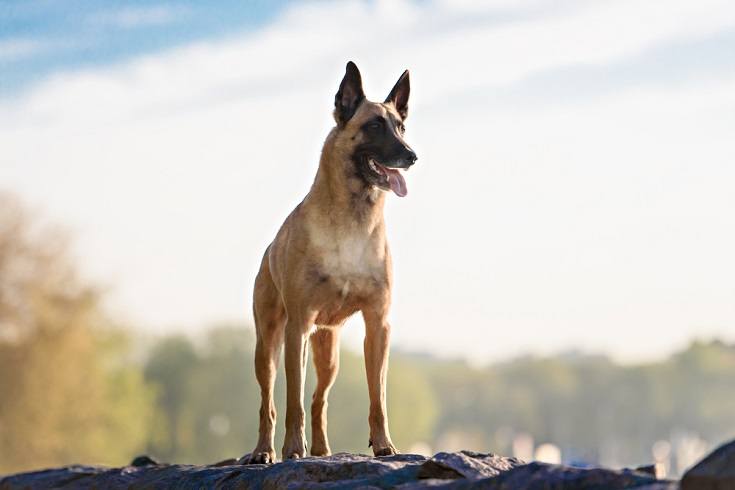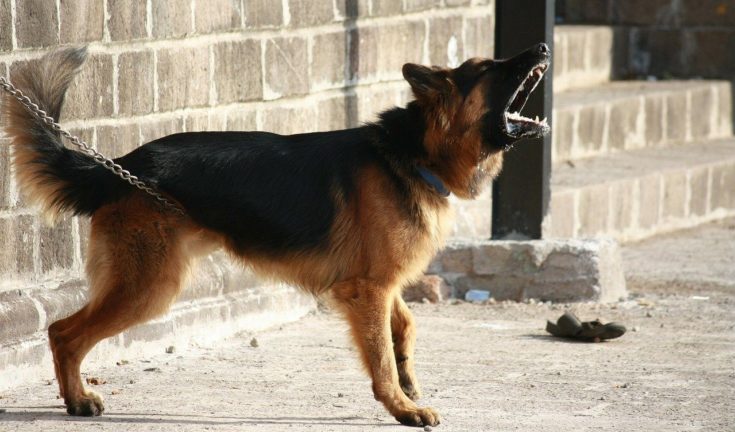Are German Shepherds Good With Babies? Breed Facts & FAQ

Updated on
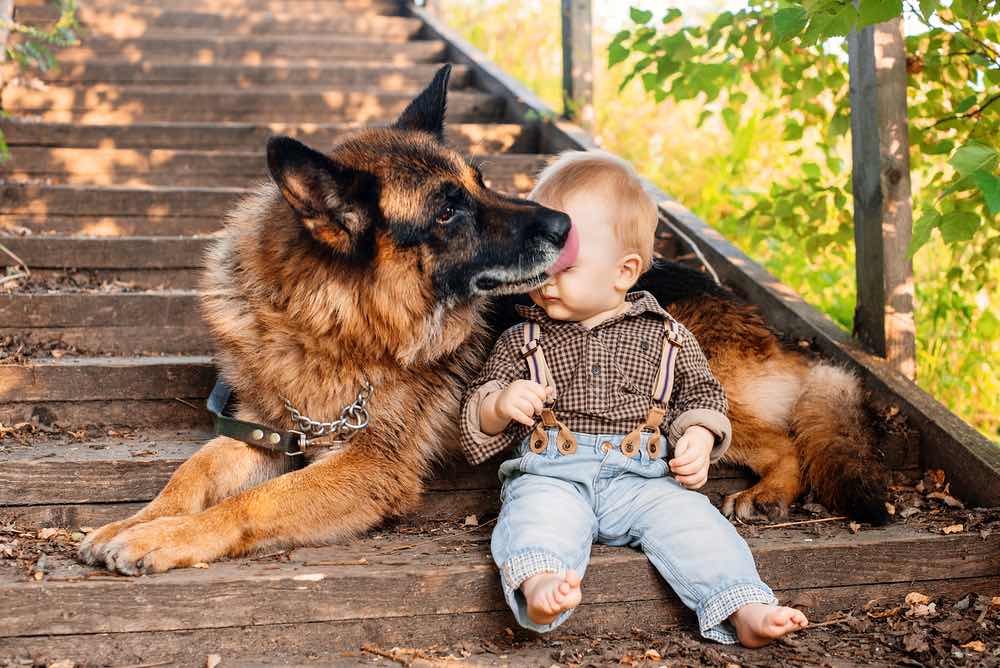
When you welcome a new dog or baby to your family, you hope everything works out as you imagine. But before you buy a specific breed, you might want to know just how family-friendly they are. Many dogs get rehomed every year due to conflicting home circumstances.
Regardless of what happens, you’re doing the right thing by making sure that’s not going to happen to you. So, do German Shepherds get along with babies? They absolutely can and will get along with babies, but they are still dogs, and caution is necessary. We’ll dig deeper below.
A Word of Encouragement to New Parents
Bringing home a new baby is such a blessing for so many people. But on top of all of the good emotions that come along with it, it can be equally nerve-racking. After all, you have to consider all of the different ways your life will shift.
Not only are you affected, but so is every aspect of your lifestyle, including those of your pets as well. If you have an existing German Shepherd as a beloved pet, but you’re welcoming a new baby, you might wonder if Shepherds are compatible with this new family addition. We want to emphasize that with the proper introductions, the situation cannot only be suitable—it can also develop into life-long companionship between the two.
Fear and hesitation might leave you wondering if having a German Shepherd around your baby is a good idea. After all, babies are so fragile, and you don’t know how your dog will react. Rehoming should be the absolute last resort, and should be avoided as long as you can absolutely help it.
Even if you have to reach out for professional assistance, you can simultaneously enjoy your baby and your Shepherd without the worry of any conflicting circumstances, as long as your animal is properly trained for such a setting.
We know that being a new mom and dad can be quite a big deal, so let’s discuss exactly what you can expect about having a Shepherd and how to monitor reactions between your German Shepherd and baby.
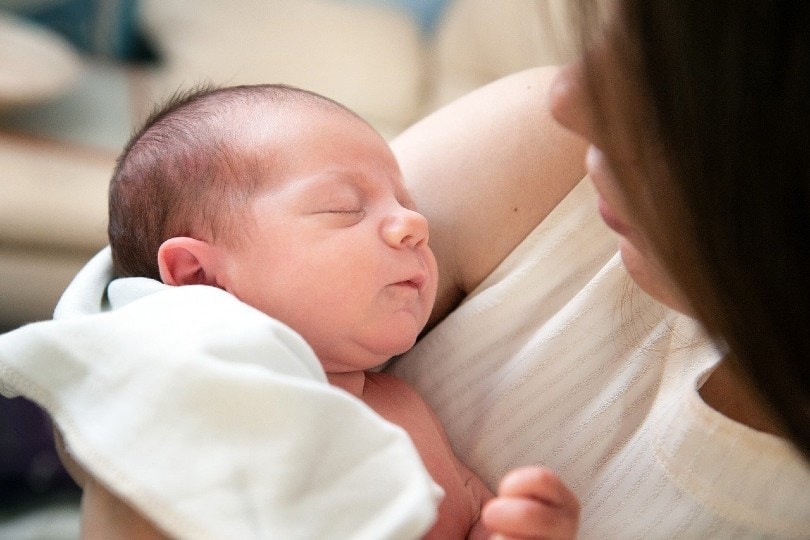
A German Shepherd’s General Character
German Shepherds are one of the most popular breeds for a reason. These dogs are brilliant, picking up on the mood of many situations and showing great judgment. Often, German Shepherds are used for guard or watchdog tasks. Many homeowners love the safety of having a German Shepherd around because they’re hyper-aware of their surroundings. They’ll be quick to alert you if they sense any trouble or if you have an intruder of any kind lurking nearby.
They’re also very good at picking up on people’s personalities. So, if they feel like something is suspicious, you might notice their behavior change.
When it comes to children, German Shepherds are usually very loving and protective. As the children grow, your German Shepherd will gain affection for them. When they are very small babies, it seems that most Shepherds have a very good sense of understanding, but supervision is always required.
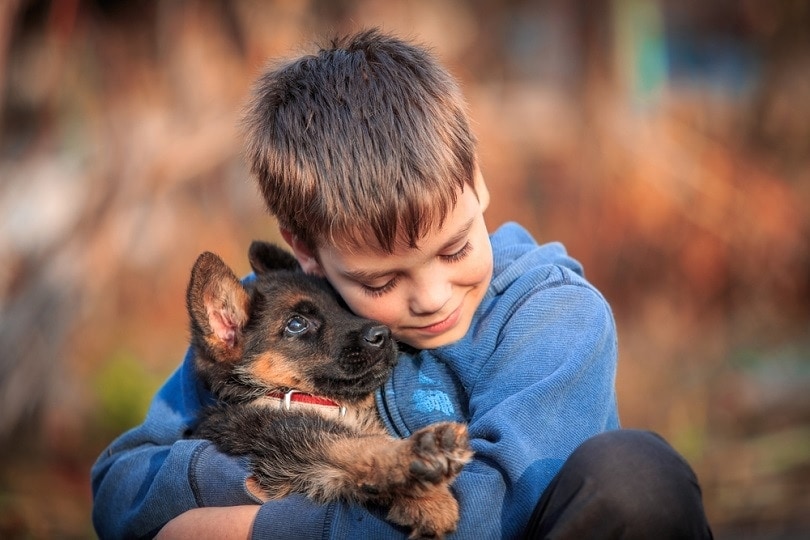
Precautions to Consider
No dog should ever be left alone with a baby at any time. Supervision is always necessary. With babies being such delicate creatures, a dog could very seriously injure or even kill a baby with very minimal effort.
When such terrible events occur, they are often not planned by the dog or even done out of malice. The vast majority of the time they are complete accidents. With a dog the size of a German Shepherd, they can very seriously injure a baby by stepping on it, laying on top of it, or even picking it up with their mouth.
While the German Shepherd might mean no harm, that doesn’t mean that things will end well. It bears repeating—supervision is a must. No matter how much you trust that your dog has your baby’s best interest at heart, you as the parent and owner must ensure that safety is maintained.
The Importance of Training
Because German Shepherds are so intelligent, they handle training very well. If you’re more worried about your German Shepherd being boisterous around a new baby, there are options available to you.
If you don’t feel comfortable training, there are tons of professional trainers willing to help. They will work with your dog to bring out their best behavior and create perfect manners.
Your dog will quickly learn what is expected of them, learning to be more mindful of commands, including calming down when necessary. You don’t need your Shepherd to be specifically trained for time spent around a newborn, your dog simply needs reliable recall so that you can control your pup to follow your orders when the moment demands it.
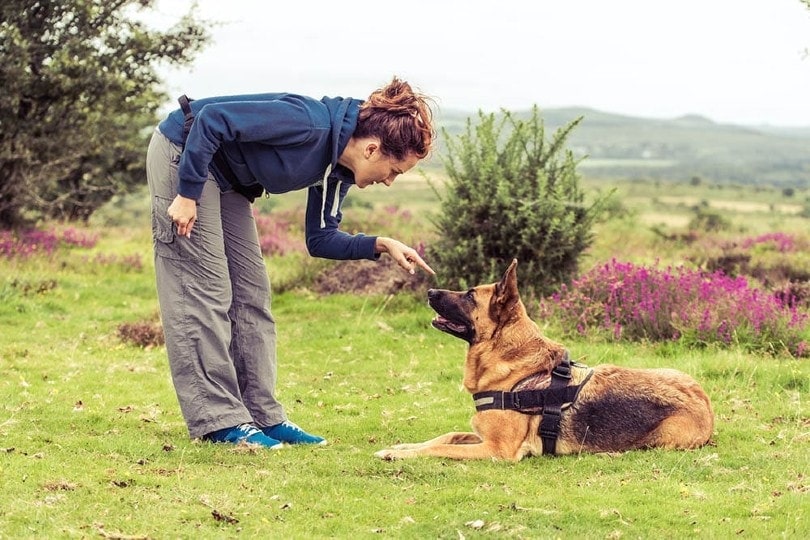
High Energy
German Shepherds are an intensely high-energy breed. They require so much physical and mental stimulation to keep their brains and bodies busy.
Having a new baby can be quite a challenge. You don’t get as much sleep as you want, you feel like you don’t have enough time in a day, and there are other schedule conflicts, too.
Everyone in the house has to adjust, including your German Shepherd. You have to think of the responsibility between taking care of a Shepherd and a baby simultaneously. If you have an existing Shepherd, it should be easy to acclimate them to this new lifestyle.
But introducing a new puppy might be a very taxing experience for you as an owner—especially as puppies German Shepherds can be very rambunctious, high-energy, and stubborn.
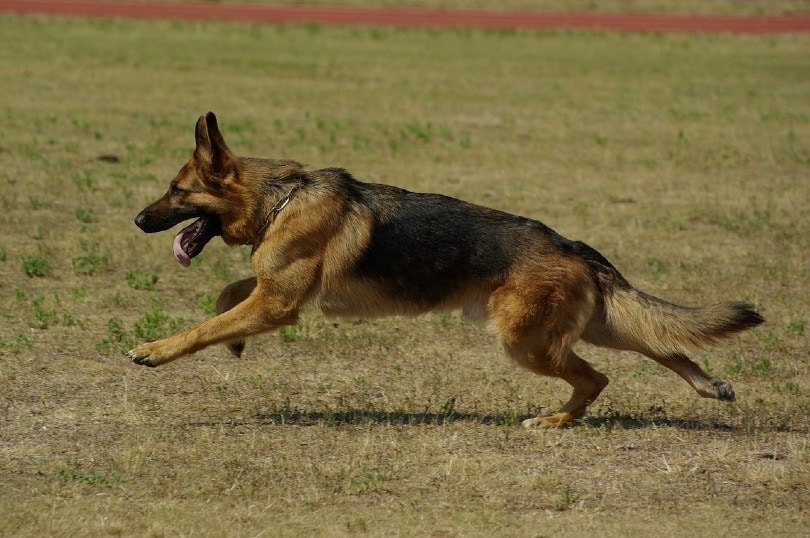
Shelter Risks
Before we move forward, we want to say that this rule applies to all shelter animals, not just German Shepherds. When a shelter animal is up for adoption, finding a home that they integrate well is the goal of every pet counselor.
After all, it would be a shame for them to wind up in the same predicament. However, because that dog already lived in a previous home, it is hard to say how they will respond in a new situation, especially one involving a baby. Unless it is a remarkably calm Shepherd or one who has been around children before, getting an adult dog might not be the best option while your baby is small.
For any shelter dog, it’s best to wait until your child reaches roughly 6 years of age. At this age, they have learned basic decency and how to respect animals as they should. Likewise, your dogs will enjoy a child much more if they are calmer and less erratic than young kids can be.
Home visits can be vital during this phase as well. Everyone’s life will change when introducing a new pet, and that task should not be taken lightly.
Will My Shepherd Like My Baby?
As with anything else, your Shepherd’s reaction to the baby will depend greatly on their personality. Sometimes it’s hard to tell just how they will respond unless you’ve seen them in a similar situation before.
Some Shepherds might be incredibly interested, hanging out at your side as you’re holding your little one. Others might act completely disinterested. Some might be inquisitive or even highly cautious of this unknown creature.
No matter how doubting your Shepherd might seem, supervision is of utmost importance. Shepherds have incredibly strong bodies and incredible agility, so they can cause a lot of damage and just a small window of time—even if they mean no harm.
Conclusion
Getting used to a new situation is difficult for all parties, but everything will adjust. If you have a German Shepherd and you’re welcoming a baby, take all the precautions you can and make introductions slow.
Remember that no dog, regardless of breed, should ever be alone with a new baby. As long as you implement the proper introductions and safety measures, your Shepherd and baby will get along like best buds in no time.
Featured Image Credit: Alyona Mikhailova, Shutterstock



